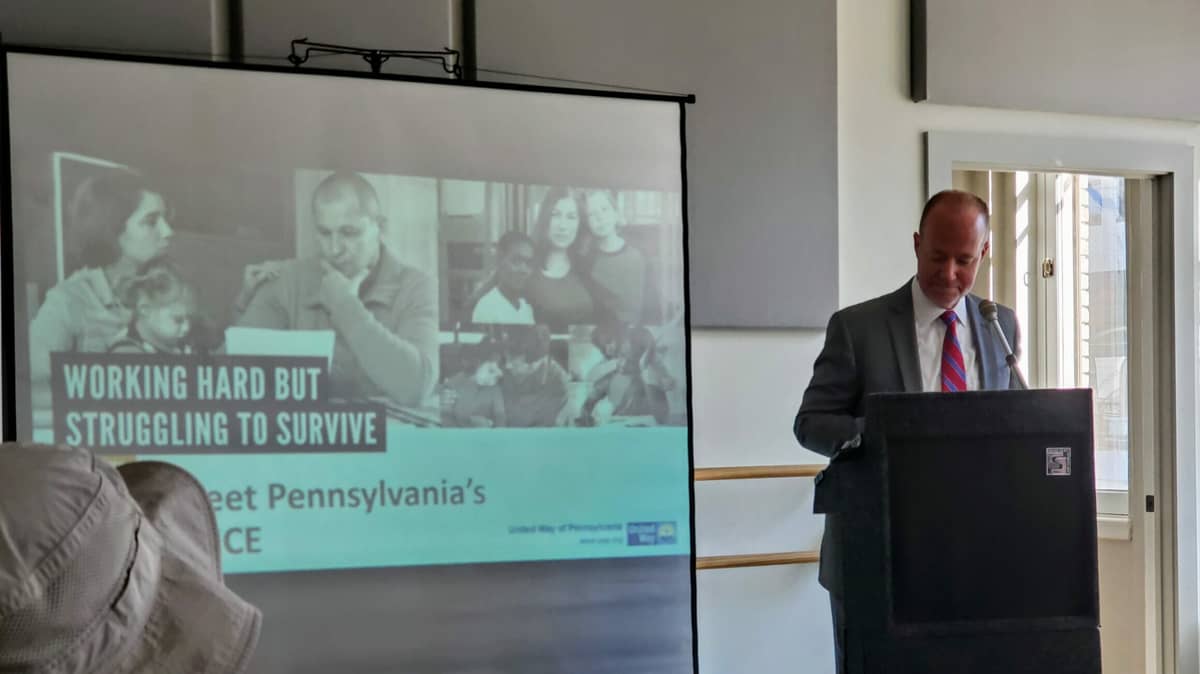The United Way of Lebanon County held a town hall Sept. 8 in Palmyra to share current information about the local ALICE population, as well as advocate for public policy assisting them.
ALICE stands for Asset Limited, Income Constrained, Employed. The acronym covers people who are employed and above the poverty line, but who fall below the ALICE Household Survival Budget. The town hall was based on an updated set of ALICE data released by United Way of Pennsylvania earlier this year.

Representatives for Senator Bob Casey and state Senator Chris Gebhard attended the town hall, as did Lebanon County Commissioner Michael Kuhn.
The Household Survival Budget, currently based on 2018 data, calculates expected costs within a county for categories including housing, food, child care (if applicable), and more. It does not include savings or retirement costs.

Rebecca O’Shea, the advocacy engagement coordinator for United Way of Pennsylvania, commented that she expects many of these costs to rise once 2021 data is released in March 2022. Consequently, she expects a larger portion of the overall population to fall under ALICE.
O’Shea said that, while the United Way does not take a stance on the minimum wage, the statewide minimum of $7.25 should be taken into account when viewing the data.

Within the county, ALICE percentages vary significantly, with the low in Mount Gretna borough at 5% and the high in Lebanon City at 60%.

During her presentation, O’Shea advocated for various public policies.
She supported a state-level earned income tax credit, giving back some earnings of low- to middle-class households. While some counties do this on a local level, the United Way advocates for a statewide program that currently is only proposed.
The United Way also supports the PA 211 program, which connects individuals to various types of non-emergency resources. It can be accessed through call or text.
O’Shea also pointed to a 34% rate of preschool-age children enrolled in preschool below the ALICE threshold compared to a 52% rate for those above the threshold. And while 17% of Pennsylvania children live below the poverty line, 27% fall into the ALICE category.
She advocated for policies supporting early childhood education, as well as health and nutritional support for younger children and babies.
She also supported further promotion of the SNAP program within ALICE populations, as many eligible families do not take advantage of it.
COVID-19 impact should also be considered, O’Shea said, as she advocated for various relief measures for families adversely affected including expanded healthcare, affordable housing access, and workforce development.
Following the presentation, the floor was opened to audience members for questions and discussion. Some shared local community resources or difficulties they were having working with ALICE families.
For more information on ALICE statistics or methodologies, visit the United for Alice website or view Lebanon County data here (PDF).
Questions about this story? Suggestions for a future LebTown article? Reach our newsroom using this contact form and we’ll do our best to get back to you.

Keep local news strong.
Cancel anytime.
Monthly Subscription
🌟 Annual Subscription
- Still no paywall!
- Fewer ads
- Exclusive events and emails
- All monthly benefits
- Most popular option
- Make a bigger impact
Already a member? Log in here to hide these messages
Our community deserves strong local news. LebTown delivers in-depth coverage that helps you navigate daily life—from school board decisions to public safety to local business openings. Join our supporters with a monthly or annual membership, or make a one-time contribution. Cancel anytime.
























